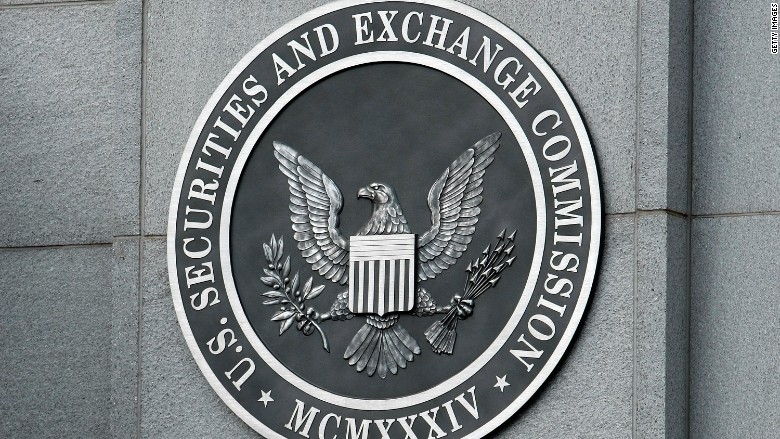This series is a 101 for those in the EB-5 industry who have always wondered, but never had the time to figure out how securities laws interact with the EB-5 program.
The Registration Requirement & Exemptions
From a legal perspective, the immigrant investor EB-5 program is a very interdisciplinary field. As EB-5 is an immigration program it obviously involves immigration law. And because all Regional Center projects and a growing number of Direct EB-5 projects involve the foreign investor investing in the New Commercial Enterprise (NCE) which is basically a fund, there is a securities law component to the EB-5 program as well. In addition, because many Regional Center deals involve real estate projects, real estate financing is also an important component.
The securities law aspect, in particular, has garnered much interest recently as the SEC pays more attention to the EB-5 marketplace in the aftermath of a handful of high-profile fraud cases. EB-5 Private Placements even made the SEC’s short list of Examination Priorities for 2016.
There is also a lot of online chatter originating from EB-5 market players including law firms and broker-dealers talking about exemptions to registration such as Reg D offerings and Reg S offering, the difference between 506(b) and 506(c) offerings, as well as the what seems to be the topic of the moment: the need/role/ importance of broker-dealers in an EB-5 transactions.
But what does this all mean? I am a big fan of starting at the beginning so let’s start there.
What is a Security?
The Supreme Court defined a security as “a contract, transaction or scheme whereby a person invests his money in a common enterprise and is led to expect profits solely from the efforts of the promoter or a third party.” Most people are accustomed to the idea of purchasing a stock or a bond issued by a company as being a security. One easy rule of thumb to consider is whether you are getting anything tangible from your purchase: if you purchase an interest in a company (ex. stock) for a share of future profits (ex. dividends) you have purchased a security. A purchase of real estate, however, is not a purchase of a security.[2]
Why Does it Matter if What You Have Purchased is a Security or Not?
It matters for two reasons. First, whether or not something is a security will define whether you are subject to federal securities laws that govern securities (and related state securities commission laws) or not. (So think of it as a murder that occurred in Breaking Bad or Justify – depending on who did the killing and why and how, it would determine whether or not the feds can get involved or not.)
Second, if something is a security, then the registration requirements of the securities laws will kick in.
And because each unit of the EB-5 New Commercial Enterprise’s interest that is being sold to the foreign investors is considered a security, securities laws matter in our industry.
The Registration Requirement of Securities Laws
There are two main bodies of law when it comes to securities: the Securities Act of 1933 and the Exchange Act of 1934. These dates have meaning behind them. The Great Depression began in 1929 with a huge stock market crash. The federal government determined that the cause of that crash was the indiscriminate purchase and sale of security interests and during the 1930s decided to come up with a regime to govern securities.
The Securities Act of 1933, therefore, begins with a very broad rule which basically says, if you are going to sell securities in the United States, you need to register those securities with the SEC.[3] And one can register securities with the SEC by filing what is called a “registration statement”. This is often called the “registration requirement” which is in Section 5 of the Securities Act. So when you hear someone say, “a Section 5 violation” it is just a lawyer’s way of saying that the cardinal rule was broken.
But here’s the thing – filing a registration statement with the SEC is a pretty big deal. It is intrusive and expensive. Once a company registers its securities with the SEC, all of the information about that company becomes public information. So the idea behind the registration of securities is to shine a spotlight on the company and that is the trade-off a company makes in return for the ability to ask the public for money.[4]
But while the securities law starts out with the basic proclamation that all securities must be registered, it goes on to carve out large categories of securities or types of transactions that are exempt from the registration requirement.
The Exemption to the Registration Requirement
And these exceptions to the rule are what are called “exemptions”. A very big exemption to the registration requirements is the Private Placement Exemption. A private placement is when someone raises under $1 million in a small offering (e.g. someone starts a company and gets investment from friends and family) or a company sells securities to a select group of investors who are deemed sophisticated. Banks, mutual funds and insurance companies are all “Accredited Investors” as defined in the Securities Act, so they can purchase these private securities. Individuals can also meet the Accredited Investor definition and purchase these private securities. By one count, more than 2/3 of securities issued in the United States are sold through some form of private placement.
Because the exception to the rule is big enough to drive a truck through, the SEC is hyper vigilant in ensuring companies don’t abuse the exemptions as a way of avoiding registration. These exemption rules are housed under a bigger set of regulations promulgated by the SEC in 1982 called “Regulation D” – so offerings that claim these exemptions are called Reg D offerings.
However, Reg D applies only to securities that are sold in the United States. If a company that issues securities (i.e. an issuer) chooses to sell these securities overseas, then another set of exemption rules promulgated in 1990 under Regulation S kick in to govern the offer and sales, and likewise, these foreign offerings exempt from registration are called Reg S offerings.
Exemptions for EB-5 Offerings
While Reg D and Reg S refer to different types of exemptions, in EB-5 parlance they are also terms people use to refer to whether the EB-5 investor originated from the U.S. or overseas.
In other words, when a Regional Center says, “About 20% of our investors are Reg D investors,” it means that 80% of the sales were carried out in overseas and 20% of the offer/sales happened in the United States. So domestic EB-5 offerings are often called Reg D offerings and overseas EB-5 offerings are called Reg S offerings.
Some people are confused about how an EB-5 offering can be domestic, but this refers to EB-5 investments made by foreigners living in the United States under non-immigrant visas such as H-1B work visas or F-1 student visas.
(Part 2 will cover Broker-Dealers: What Are They and Why Are They Relevant)
——–
[1] The importance of starting at the beginning has become more personal as my oldest child is going off to college in the fall. So basically he walks and talks like a grown up – he drives, even! – but I find that despite a good public school education in the suburbs of New York City, a lot of things that I take for granted are still gobbledygook to him. So I am even more mindful of what it means to go “back to the basics”. [2] An interesting variation would be if you purchase a timeshare interest in a vacation condo. This seems to depend on the state rules – some classify it as a security and some as an interest in real estate. [3] The Exchange Act which was promulgated a year after in 1934 governs what type of reporting an issuer of securities have to make after registration. [4] All public company information can be found on the SEC website called EDGAR. If you’ve never visited, take it for a spin. (For example, put in AAPL, the ticker for Apple and then once on the company page, put search for “10-K” in the filing type for all of their annual statements that provide all their financials, how much the executives are making and a lot more!)



